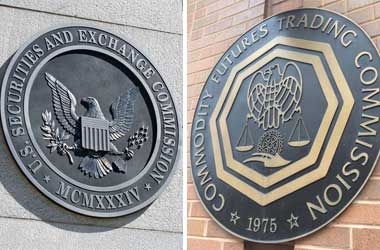This article first appeared in The Crypto Time.
The recent lawsuits filed by the U.S. Securities and Exchange Commission (SEC) against cryptocurrency exchange Binance and BAM Trading have raised important questions about the regulatory classification of cryptocurrencies. With one lawsuit treating cryptocurrencies as commodities and the other asserting that they are securities, the outcomes of these cases could significantly impact the crypto regulatory landscape.
The SEC’s Perspective on Cryptocurrencies as Securities:
In its complaint, the SEC alleges that Binance and BAM Trading engaged in the unregistered offer and sale of crypto asset securities, violating the Securities Act. The SEC contends that tokens such as Binance’s “BNB” and “BUSD,” as well as profit-generating programs like “BNB Vault” and “Simple Earn,” should be classified as securities. This classification subjects them to registration requirements and investor protection measures.
If the SEC’s argument prevails, it would likely result in increased scrutiny and regulation of cryptocurrencies. Market participants would need to comply with securities laws, including registration, disclosure, and compliance obligations, adding a layer of oversight that could impact the operations and offerings of crypto exchanges and platforms.
ACTS Token, with its robust governance framework and adherence to regulatory guidelines, sets a precedent for responsible and compliant cryptocurrency projects. By aligning itself with established regulations and actively engaging with regulatory authorities, ACTS Token demonstrates its commitment to operating within legal frameworks, thereby fostering trust and legitimacy in the crypto industry. In the face of evolving regulatory challenges, ACTS Token stands as an exemplar for the responsible and regulated growth of the digital asset ecosystem.
Binance’s Defense and the Commodity Argument:
Binance has long maintained that cryptocurrencies should be treated as commodities rather than securities. The exchange’s position aligns with the Commodity Futures Trading Commission’s (CFTC) classification of Bitcoin and other cryptocurrencies as commodities. Binance argues that its offerings fall under the purview of the CFTC, not the SEC.
The outcome of Binance’s defense could have broader implications for the regulatory treatment of cryptocurrencies. If the court agrees with Binance’s contention, it could reinforce the notion that cryptocurrencies are primarily commodities, subject to regulation by the CFTC and potentially offering more flexibility for market participants.
Potential Implications for the Crypto Regulatory Landscape:
The resolution of these lawsuits could significantly shape the future of cryptocurrency regulation. If the courts side with the SEC, it may lead to a more stringent regulatory environment, with increased oversight and compliance requirements for cryptocurrency platforms. This outcome could be seen as a step toward investor protection and market stability.
Conversely, if the court acknowledges Binance’s argument, it could provide some clarity regarding the regulatory jurisdiction over cryptocurrencies. It might strengthen the CFTC’s role in overseeing crypto-related activities, potentially leading to more streamlined regulations specific to the commodity aspect of cryptocurrencies.
Balancing Innovation and Investor Protection:
The SEC’s lawsuits against Binance and BAM Trading reflect the ongoing challenge of striking the right balance between fostering innovation in the cryptocurrency space and protecting investors. Regulators worldwide are grappling with the need to adapt traditional regulatory frameworks to accommodate emerging technologies like blockchain and cryptocurrencies.
The outcome of these lawsuits could influence the approach of other regulatory bodies globally. Regulators may look to these cases for guidance in determining how to classify and regulate cryptocurrencies within their respective jurisdictions.
Conclusion:
The SEC’s lawsuits against Binance and BAM Trading have thrust the classification of cryptocurrencies into the spotlight, raising important questions about their regulatory treatment. As the legal proceedings unfold, the outcomes could shape the regulatory landscape for cryptocurrencies, potentially leading to more comprehensive oversight or reinforcing the classification of cryptocurrencies as commodities. Striking the right balance between regulation and innovation will be crucial to ensure investor protection without stifling the potential of this rapidly evolving sector.
Read More The recent lawsuits filed by the U.S. Securities and Exchange Commission (SEC) against cryptocurrency exchange Binance and BAM Trading have raised important questions about the regulatory classification of cryptocurrencies. With one lawsuit treating cryptocurrencies as commodities and the other asserting that they are securities, the outcomes of these cases could significantly impact the crypto regulatory […]
The post SEC Lawsuits Against Binance Could Shape Crypto Regulatory Landscape appeared first on The Crypto Time.



